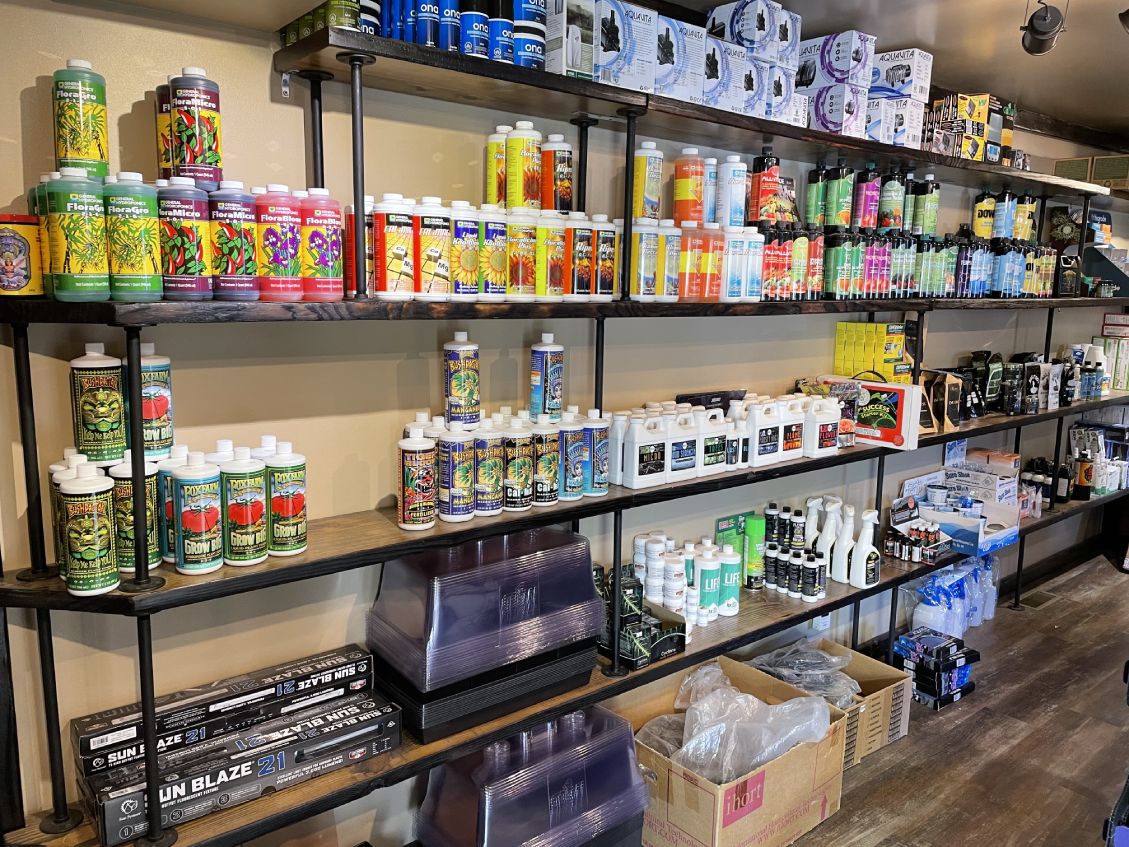Transform Your Growing Experience with The Indoor Earthworm's Innovation
Transform Your Growing Experience with The Indoor Earthworm's Innovation
Blog Article
Enhance Your Horticulture Skills With Hydroponics: Checking Out Benefits
The method of growing plants without dirt might appear non-traditional at initially, however its benefits are worth taking into consideration. As we delve into the world of hydroponic gardening, we discover a myriad of benefits that not only enhance plant development yet additionally give unique opportunities for individuals looking to elevate their gardening skills.
Advantages of Hydroponic Gardening
Hydroponic gardening offers various advantages due to its effective usage of resources and exact control over plant growth conditions. By offering plants with direct access to nutrients dissolved in water, hydroponic systems eliminate the need for soil, decreasing water use by up to 90% contrasted to conventional soil-based growing. This effective nutrient shipment technique additionally permits faster plant growth rates and higher returns, making hydroponic gardening an eye-catching alternative for optimizing restricted area and resources.
Additionally, the regulated setting of hydroponic systems makes it possible for farmers to maximize variables such as ph, humidity, and temperature degrees, bring about much healthier plants with decreased danger of conditions and bugs. This exact control over growing problems not only advertises quicker and more regular plant growth yet also permits for year-round growing no matter of outside climate conditions.
Faster Plant Development With Hydroponics
Utilizing innovative nutrient shipment systems, hydroponic horticulture assists in accelerated plant growth prices compared to traditional soil-based farming methods. In hydroponic systems, plants have straight access to crucial nutrients dissolved in water, enabling ideal absorption without the need to use up power establishing comprehensive origin systems to search for nutrients in the dirt. This efficient nutrient shipment device enables plants to reroute their power towards durable vegetative growth and prolific fruiting or blooming.
Furthermore, the regulated environment in hydroponic configurations makes certain that plants receive the perfect problems for development regularly. Factors such as temperature level, ph, light, and humidity degrees can be meticulously kept track of and gotten used to produce the ideal expanding setting for each plant selection. By removing the variability present in soil-based horticulture, hydroponic systems provide plants with a steady and desirable setting that optimizes their growth capacity.

Water Preservation Advantages
Offered the effective nutrient delivery system and regulated environment of hydroponic systems, one considerable advantage worth exploring is the conservation of water sources. Hydroponic horticulture consumes to 90% less water contrasted to traditional soil-based gardening approaches. This substantial reduction is credited to the closed-loop system where water is recirculated and recycled, minimizing waste. In standard dirt horticulture, water is lost through evaporation, overflow, and percolation past the origin area, leading to ineffectiveness. Nonetheless, in hydroponics, the nutrient solution is delivered directly to the plant roots, making certain optimum water uptake and reducing water loss.
Furthermore, hydroponic systems enable for accurate control over water use, with the capacity to change and keep track of nutrient levels based on plant needs. This targeted approach prevents overwatering, check my site a common issue in soil-based horticulture, more adding to water preservation efforts. By taking full advantage of water performance and decreasing waste, hydroponic horticulture emerges as a eco-friendly and lasting option for individuals looking to reduce their water intake in horticulture practices.
Year-Round Plant Cultivation

By managing aspects such as temperature, nutrient, and light degrees, hydroponic systems allow plants to prosper regardless of outside climate condition. This consistent setting permits for constant plant development and harvest, providing a trustworthy supply of fresh fruit and vegetables even in the dead of winter.
In addition, the capability to cultivate plants year-round in hydroponic systems opens chances for growers to trying out a broader variety of plants, broaden their expanding seasons, and increase overall performance. This versatility and integrity make year-round plant growing in hydroponics a valuable device for both hobbyists and business growers aiming to maximize their horticulture efforts.
Enhancing Horticulture Skills Via Hydroponics
Developing effectiveness in hydroponics can empower gardeners with a much deeper understanding of plant farming techniques and improve their total gardening skills. Hydroponic systems supply a regulated environment where gardeners can very closely check and adjust aspects such as nutrient degrees, pH balance, and lighting conditions to enhance plant development. By mastering these elements, gardeners can tweak their abilities and expertise, leading to more successful harvests and much healthier plants.
Furthermore, hydroponic gardening challenges standard concepts of soil-based farming, urging garden enthusiasts to think outside the box and explore cutting-edge expanding approaches. This trial and error can cultivate creativity and problem-solving skills, as gardeners learn to adapt and troubleshoot click here for more issues distinct to hydroponic systems. Additionally, the effectiveness of hydroponic arrangements, such as upright yards or nutrient movie strategies, can show garden enthusiasts exactly Go Here how to make the most of area and resources effectively.
Conclusion
In conclusion, hydroponic horticulture provides numerous benefits such as faster plant development, water conservation, and year-round farming. By discovering the benefits of hydroponics, people can boost their horticulture skills and attain successful plant development. Consider including hydroponic strategies right into your gardening practices to take full advantage of efficiency and productivity in your yard.
As we dig into the globe of hydroponic gardening, we uncover a plethora of advantages that not only enhance plant development but additionally supply distinct opportunities for people looking to elevate their horticulture skills.Making use of sophisticated nutrient delivery systems, hydroponic horticulture helps with accelerated plant development rates contrasted to standard soil-based cultivation approaches. By eliminating the irregularity present in soil-based horticulture, hydroponic systems offer plants with a favorable and secure setting that optimizes their growth possibility.
Enhancing the sustainability and efficiency of horticulture methods, year-round plant farming in hydroponic systems uses a reputable and regular technique for growing a range of plants regardless of seasonal constraints. The Indoor Earthworm.In final thought, hydroponic gardening supplies various benefits such as faster plant growth, water preservation, and year-round growing
Report this page